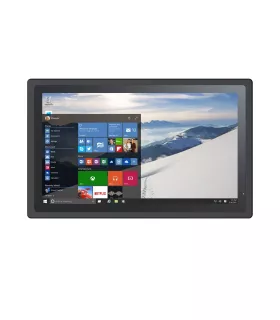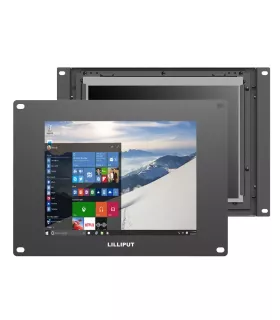Industrial Monitors
Industrial Monitors are specialized display devices designed for use in demanding industrial environments. These monitors are built to withstand challenging conditions, including dust, humidity, extreme temperatures, vibrations, and potential exposure to liquids. They play a crucial role in providing real-time data visualization, process control, and monitoring of industrial processes.
Key Features of Industrial Monitors:
1. Rugged Construction: Industrial monitors are engineered with robust and durable materials to ensure resistance against physical impacts and damage. The sturdy build allows them to endure harsh conditions commonly found in manufacturing facilities, warehouses, and outdoor industrial sites.
2. Enhanced Environmental Protection: These monitors often come equipped with features like IP (Ingress Protection) ratings to shield against dust, water, and other contaminants. This protection ensures reliable operation and extends the lifespan of the device.
3. High Brightness and Contrast: Industrial monitors typically have high brightness levels and excellent contrast ratios, enabling clear visibility of information even in brightly lit or outdoor environments.
4. Touchscreen Functionality: Many industrial monitors feature touchscreen capabilities, allowing operators to interact directly with the display and streamline their tasks efficiently.
5. Wide Temperature Range: To accommodate extreme temperature variations, industrial monitors are designed to function reliably across a broad temperature range, ensuring consistent performance in both hot and cold environments.
6. Customization Options: Manufacturers often provide customization options for industrial monitors, allowing businesses to tailor the displays to their specific needs, such as size, resolution, and input/output interfaces.
7. Compliance with Industry Standards: Industrial monitors adhere to relevant industry standards and certifications, ensuring they meet safety, electromagnetic compatibility, and environmental requirements.
Applications of Industrial Monitors:
1. Process Control: Industrial monitors are used in manufacturing plants to monitor and control various production processes, ensuring efficient and safe operations.
2. Human-Machine Interface (HMI): These monitors serve as an interface between operators and complex industrial machinery, allowing users to manage and adjust parameters seamlessly.
3. Data Visualization: Industrial monitors display real-time data, statistics, and analytics, aiding in decision-making and optimizing industrial processes.
4. Surveillance and Security: In security applications, industrial monitors are utilized for monitoring surveillance cameras and ensuring the safety of critical areas.
5. Industrial Automation: They play a vital role in automated systems, facilitating seamless communication between machines and operators.
Overall, industrial monitors are essential tools that contribute to increased productivity, process efficiency, and safety in diverse industrial settings.











































